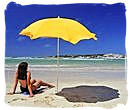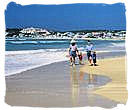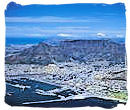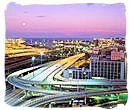 |
||||||||||||||||||||||||||||||||||
Religions in South Africa, a brief overviewThe wide variety of religions in South Africa is a reflection of the cultural diversity in South Africa's "Rainbow" society. Nearly all South Africans will tell you that they belong to a church and practice a faith, although their thinking when it comes to religion and religious beliefs differ widely. Even though South Africa has never had an official state religion, the government has positively been encouraging Christian beliefs throughout much of the last century. Despite the wide-ranging spectrum of South Africa's religions, 80 percent of all South Africans consider themselves Christian. 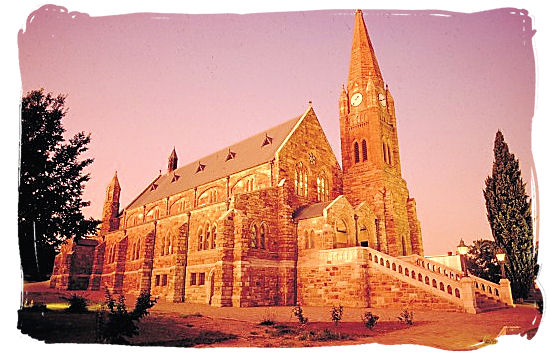 The Dutch Reformed church in Heidelbergh Religions in South Africa, South Africa religion overview Nearly 40% of the black colored South Africans are members of the African Independent Churches, commonly known as the Zionist Christian Churches, which include no less than 4,000 congregations. This denomination in general embodies a mixture of traditional African and Protestant Christian beliefs. It differs widely in its degree of theological orthodoxy or heterodoxy from traditional Christian beliefs. 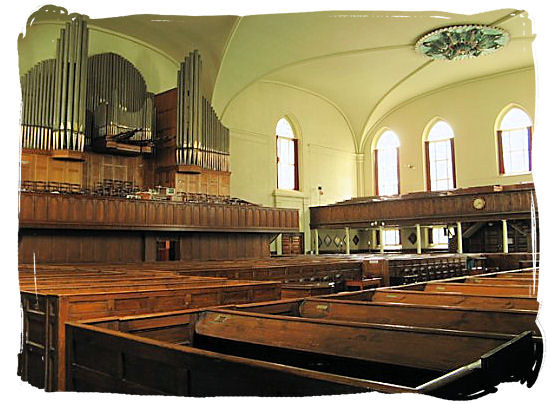 Interior of the "Groote Kerk" (big church) in Adderleystreet Cape Town Religions in South Africa, South Africa religion overview The large Christian Protestant denomination has its origin on the day when the first Dutch settlers including missionaries, set foot on South African soil under Jan van Riebeeck in 1962. Right from those days it became known as the Dutch Reformed Church. Today protestant churches in South Africa total a membership of approximately 4 million, the majority of whom are white-colored people as well as people of mixed ethnic background.  Arrival of Jan van Riebeeck in the Cape in 1652 South African religions The Traditional religion belonging to the early “Khoi” and ‘San” people included a great many mythical tales involving gods and ancestor-heroes, whose lives were regarded as excellent examples of ways of dealing with social conflict situations and personal problem issues. They believed that by means of the use of dance and altered states of consciousness they would obtain knowledge and insight from the gods and ancestral spirits for the purpose of healing a person or remedying a social evil. 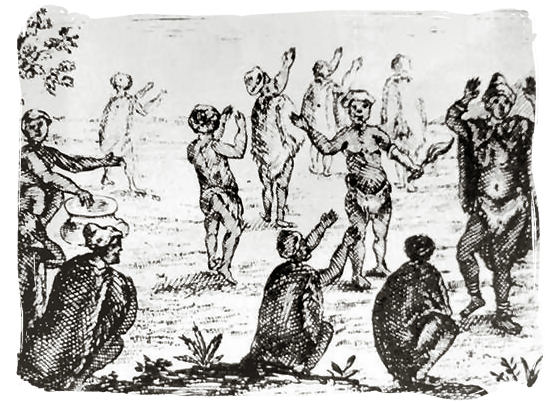 Khoi people worshipping the moon Religions in South Africa, South Africa religion overview The vast majority of Bantu speaking people arriving in South Africa during the first millennium A.D. did believe in a supreme being, a deity who possessed the power of creation. This deity was basically thought to be unreachable for human beings and also beyond human comprehension. Much more important and influential in the spiritual life of the Bantu people have been the ancestral spirits. These spirits could communicate with and influence the world of the living and act as an intermediary between them and the deity. 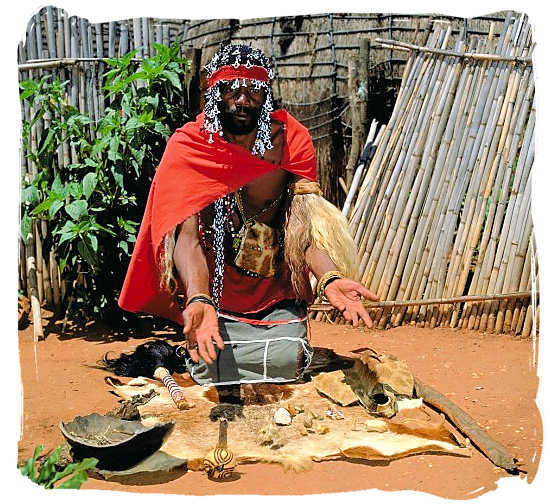 Traditional witchdoctor throwing the bones South Africa religion overview, South African religions copyright © South African tourism Other major religions in South Africa are Hinduism, Islam, Buddhism as well as the Bahá'í Faith. Hinduism had been introduced by the slaves and servants moved in by the Dutch from the Indian subcontinent. The Islam was introduced through the Cape Malay slaves of the Dutch colonists. These days the majority of Islam believers are of Indian ancestry. Buddhism was introduced through a number Chinese and Indian immigrants. The Bahá'í Faith was introduced in 1911. 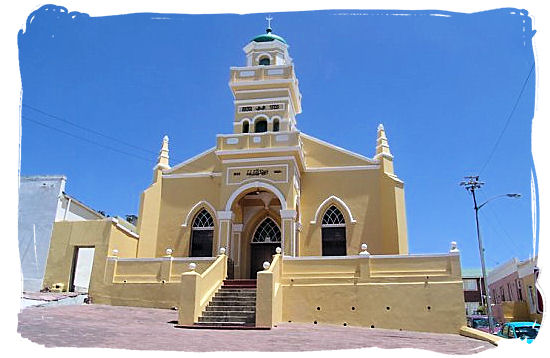 One of the 10 Mosques in the Bo Kaap (Old Malay quarter) Religions in South Africa, South Africa religion overview Photograph by Charles Roffey Judaism in South Africa came to exist some time prior to the discovery of the Cape of Good Hope, by way of the participation of Jewish astronomers and cartographers in the Portuguese discovery of the sea-route to India. They assisted Bartolomeu Dias and Vasco da Gama who first sailed around the Cape of Good Hope in 1488 and 1497. Having said that, Jews only began to arrive in numbers from the 1820s. 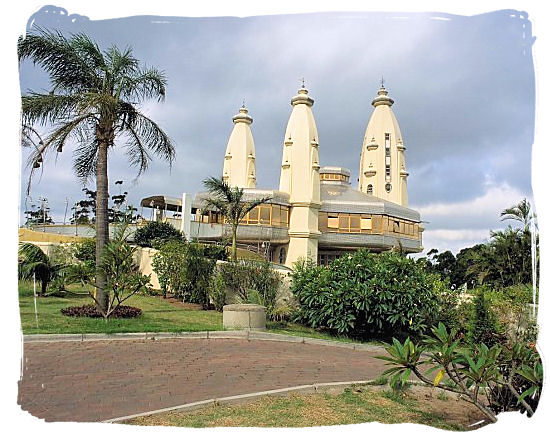 Sri Sri Radhanath Temple of Understanding in Chatworths Durban South Africa religion overview, South African religions copyright © South African tourism According to statistics recorded in 2001, the percentages of the South African population that belonged to the different religions were as follows:
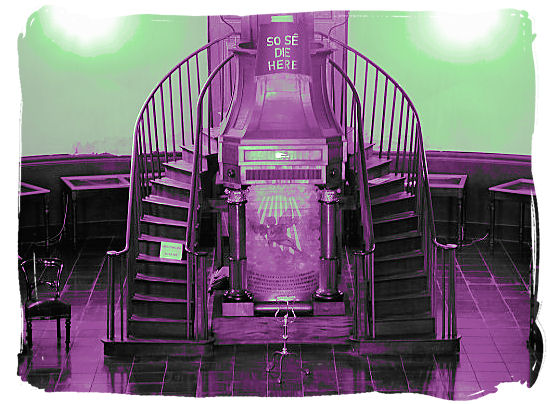 The pulpit in the Old Slave Church (now a museum) in Cape Town Religions in South Africa, South Africa religion overview copyright © South African tourism Top of Page |
|
|||||||||||||||||||||||||||||||||
|
|
||||||||||||||||||||||||||||||||||
